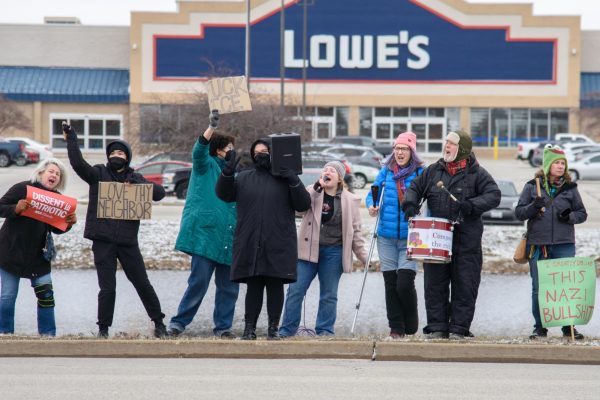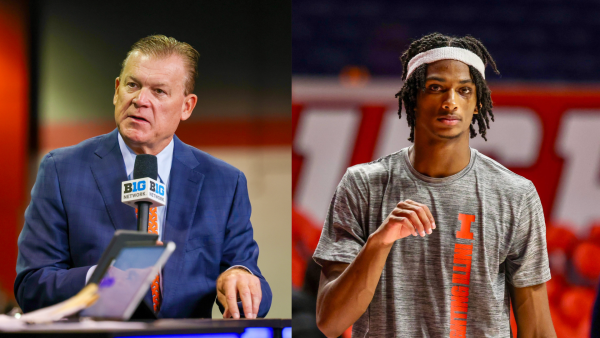Farrakhan to visit UI for first time
Oct 22, 2004
Last updated on May 11, 2016 at 04:33 p.m.
When members of Alpha Phi Alpha Fraternity, Inc. made a mental checklist of speakers they wanted to address the campus and community at their annual program called The Ritual, political and social activists topped the list. A bit of controversy thrown into the mix would create the ideal speaker to serve their purpose, said My’Ron McGee, Ritual committee chairman.
This Sunday, Minister Louis Farrakhan, leader of the Nation of Islam, will visit the University for the first time to address the campus and community at Foellinger Auditorium. This is the 19th year of The Ritual, which was started in 1985 by fraternity member Darwin Brown. The program is designed to create awareness of social and political issues in the campus and community, particularly relating to students of color. Past Ritual speakers include hip-hop artist Talib Kweli, psychologist and author Na’im Akbar and University of Pennsylvania professor Michael Eric Dyson.
The Nation of Islam, based in Chicago and established in 1930 by Wallace Dodd Fard, is a religious group that largely focuses on political and socio-economic issues facing black Americans.
Farrakhan’s chief of protocol, Claudette Muhammad, said Farrakhan is looking forward to visiting the campus and is “excited to be speaking to students.”
Get The Daily Illini in your inbox!
Although Farrakhan is nationally recognized as much for his fiery speeches as for the controversy that often surrounds him, McGee said they welcome any controversy that might arise from his visit.
“Me personally, I felt that in order to get the message we wanted to get across and to get a plethora of people to come to the event, we needed a controversial figure that would draw a diverse crowd … this isn’t an event just for Muslim students, it isn’t an event just for black students, it isn’t an event just specifically for students; this is an event for the whole community to try to make everyone more socially aware and make everyone know that they can be a leader and to try to bridge that gap that seems to exist between the University community and Champaign-Urbana,” he said.
With elections just a week away, the importance of voting will likely be Farrakhan’s focus, Jones said. But fraternity members said they don’t necessarily want him to endorse any of the candidates. Fraternity member Ben Jones said Farrakhan embodies political independence.
“The fact that he isn’t politically aligned, he’s one of the few black leaders that stands up as a man and says the things that need to be said,” Jones said.
McGee said he wants Farrakhan to stress the importance of voting.
“When you don’t exercise your right to vote, you run the risk of allowing someone to get into political office who doesn’t share the same views as you and then you don’t have a right to complain,” he said.
Although The Ritual focuses on issues facing people of color, the event is free and the entire campus and community is encouraged to attend. McGee said the fraternity hopes Farrakhan’s presence will attract local people who are not already politically active. They also look forward to sparking dialogues with those who agree and those who disagree with Farrakhan’s stance on several issues, Jones said.
“To be honest, I don’t think there will be a lot of people that come that will address him, but there will be a lot of people that don’t share his views in attendance,” Jones said.
Nearly seven months of planning went into the event, and a large part of that centered on security issues. Foellinger Auditorium manager Monika Pandya said the group carefully planned security measures for the event. She said planning the event was similar to any other high profile event Foellinger puts on.
The fraternity hopes to fill Foellinger to it’s 1,700-seat capacity and McGee said he hopes a majority of those seats are filled by young people.
“We want him to focus on giving (young people) a sense of social activism and lighting that fire beneath them and letting them know that just because you’re a little person in a big world doesn’t mean you can’t be a leader,” he said.





